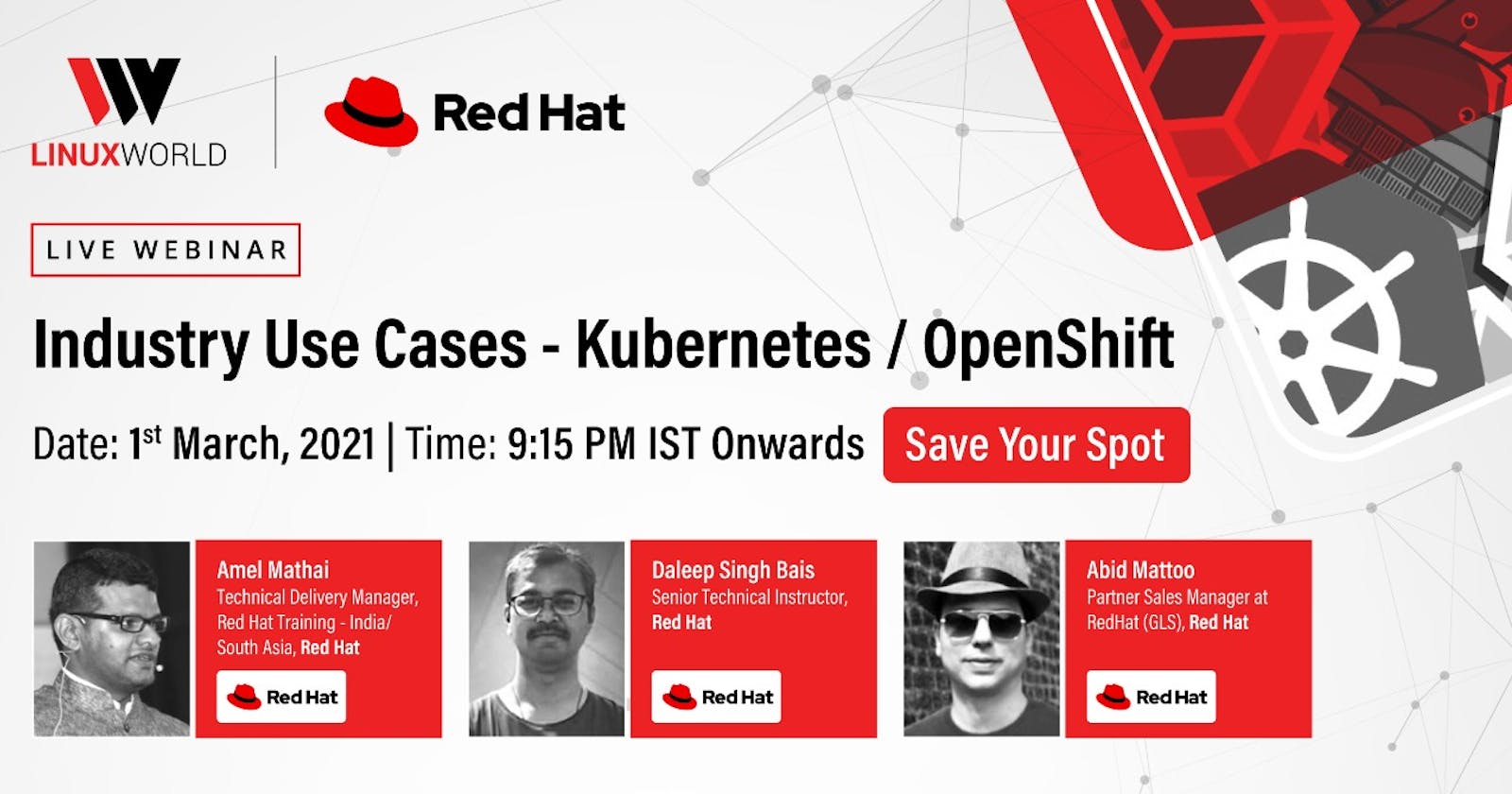Yesterday, LinuxWorld India arranged an expert session on Kubernetes/Openshift where two experts of the industry Mr Amel Mathai and Daleep Singh Bias have given the live demonstration of Kubernetes/Openshift.
So in this article, I will share what I've learned from yesterday's session:-
Containers vs Virtual Machines
Learned:-
- Why containers are better than traditional Virtual Machines
- Why containers are the future of technology
- How almost every tech firm using containers behind every application.
“ Container adoption is growing rapidly in the enterprise-much faster than expected. “ — Forbes
Benefits and Challenges of Kubernetes
The Benefits of Kubernetes
- Scalability of pods
- Workload portability
- Stability vs speed argument
Challenges of Kubernetes
- Deployment of application
- While performing operations
- Hardening
OpenShift Container Platform
 Red Hat OpenShift Container Platform delivers a single, consistent Kubernetes platform anywhere. The platform ships with a user-friendly console to view and manage all your clusters so you have enhanced visibility across multiple deployments. CI/CD, autoscaling pods, high availability, open-source, IDE integration, etc are some of the features of Openshift.
Red Hat OpenShift Container Platform delivers a single, consistent Kubernetes platform anywhere. The platform ships with a user-friendly console to view and manage all your clusters so you have enhanced visibility across multiple deployments. CI/CD, autoscaling pods, high availability, open-source, IDE integration, etc are some of the features of Openshift.
Podman
 Podman is a container runtime like docker which uses cross-platform containerization it is like an advanced version of docker and it can run all docker commands.
Podman is a container runtime like docker which uses cross-platform containerization it is like an advanced version of docker and it can run all docker commands.
The Session was great I've learned a lot of new things all thanks to LinuxWorld for organising this session.
